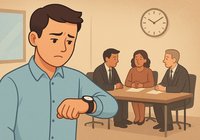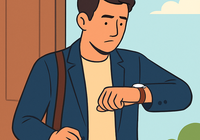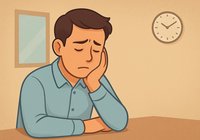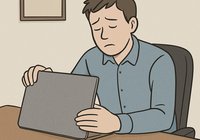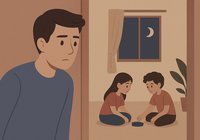| Phrasal verb | Main meaning |
|---|---|
be back [biː bæk] | to have returned to a place |
Other meanings
- to be present again
- to resume (an activity or state)
- to come back into someone’s life (emotionally or figuratively)
Example Sentences Using the Phrasal Verb "be back"
- I’ll be back in ten minutes.
- She’s be back at work after her vacation.
- The show will be back on TV next season.
- Don’t worry — the old traditions may be back soon.
Features of Using "be back"
This phrase uses the verb "be" + adverb "back" and works as a stative/intransitive expression meaning return or reappearance. It is commonly used in informal and formal contexts. It does not take a direct object; adding an object after "back" (e.g., "be back the book") is ungrammatical. It often appears in contractions ("I'll be back") and in passive-like constructions where the state of being returned is emphasized ("He is back").
Other phrasal verbs with the verb be
be away
to be absent or not at home
be in
to be at home or in a particular place
be against
to oppose or disagree with someone or something
be on
to take place
be over
to have finished
be behind
to be late or delayed
be for
to support or favor something
be out
to be absent or not at home
be into
to be interested in or enthusiastic about something or someone
be out of
to have no more of something
be about to
to be on the point of doing something (imminent future)
be down
to not be working or functioning
be up
to be awake; not sleeping
be after
to try to obtain or pursue someone or something
be off
to leave or depart
be with
to support or agree with someone
be along
to arrive soon
be through
to have finished something
be up to
to be doing something (often secretly or mischievously)
🔗 Learn more about the irregular verb be, including its forms and usage.







